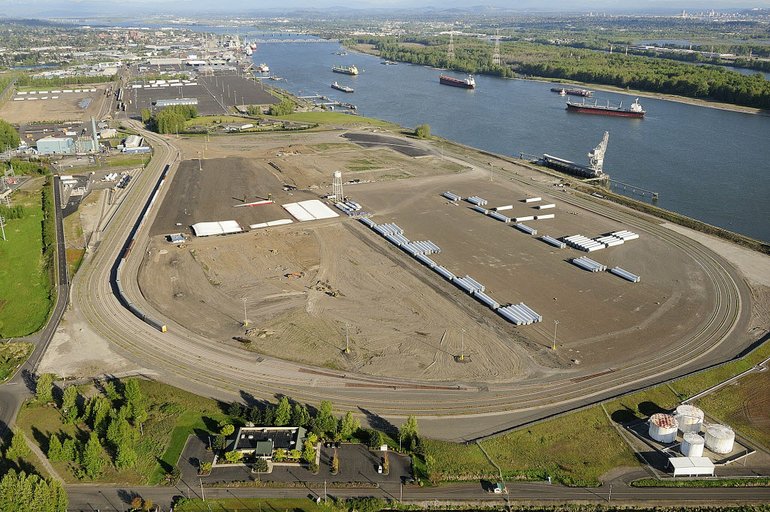Washington could lose some funds under a possible diversion of federal high-speed rail dollars. But the proposal isn’t likely to throw the state’s overall rail aspirations off track.
In May, federal officials announced the reallocation of stimulus funds turned down by the state of Florida. Among the new beneficiaries was the Port of Vancouver, which received $15 million for a rail project.
That amount hasn’t been formally secured yet, and could be diverted if funding is instead sent to disaster relief in the Midwest, as proposed.
Even without the port’s allotment, Washington has already banked well over $700 million in high-speed rail funds, including $145 million awarded after Ohio and Wisconsin similarly rejected funding. Washington’s original share of rail funds was about $590 million, according to Washington State Department of Transportation spokesperson Melanie Coon.
Washington could lose some funds under a possible diversion of federal high-speed rail dollars. But the proposal isn't likely to throw the state's overall rail aspirations off track.
In May, federal officials announced the reallocation of stimulus funds turned down by the state of Florida. Among the new beneficiaries was the Port of Vancouver, which received $15 million for a rail project.
That amount hasn't been formally secured yet, and could be diverted if funding is instead sent to disaster relief in the Midwest, as proposed.
Even without the port's allotment, Washington has already banked well over $700 million in high-speed rail funds, including $145 million awarded after Ohio and Wisconsin similarly rejected funding. Washington's original share of rail funds was about $590 million, according to Washington State Department of Transportation spokesperson Melanie Coon.
All of that funding is contractually obligated and cannot be reallocated, Coon said.
All of that funding is contractually obligated and cannot be reallocated, Coon said.
WASHINGTON — Congressional Republicans this week are side-tracking $1.5 billion in high-speed rail funds already awarded to several states.
In an adroit maneuver, GOP lawmakers propose shifting the high-speed rail dollars to pay for Midwestern disaster relief. The move would help ease the federal deficit while it underscores Republican resistance toward the Obama administration’s rail plans.
“The flooding in the Midwest has been devastating,” said Rep. Rodney Frelinghuysen, R-N.J., adding that “we must be serious about controlling the deficit.”
If House Republicans succeed, California would lose $368 million. The Amtrak Northeast corridor would lose $795 million, and a Midwestern high-speed rail corridor linking Chicago, Detroit and St. Louis would lose $404 million.
The high-speed rail grants were announced by the Transportation Department in May, after Florida had rejected the money. The checks, though, have not yet been sent.
“They’re taking after this because it’s sponsored by the president,” Rep. Jim Costa, D-Calif., complained Monday, adding, “I think it’s a real slap at California.”
California has planned to use its $368 million to help extend the initial high-speed rail route from Bakersfield to a rural junction near Chowchilla. The California money would also help pay for additional rail cars and locomotives.
Frelinghuysen chairs the House energy and water appropriations panel and added the funding shift as part of a fiscal 2012 energy and water bill. The bill is often a popular one in California’s Central Valley, as it provides money for Sacramento-area flood control, safety upgrades at the Tule River’s Success Dam and other projects.
The must-pass bill can also become a vehicle for controversial policy prescriptions, as well. The 2012 House bill, for instance, would block further spending on San Joaquin River restoration for the coming year.
This year’s bill would add $1 billion for the Army Corps of Engineers to respond to floods, tornadoes and other natural disasters in the Mississippi and Missouri river basins. The post-disaster work is considered an emergency, which usually means lawmakers don’t need to offset the additional spending.
Since Hurricane Katrina devastated New Orleans, for instance, Congress has provided some $5 billion on an emergency basis without demanding budget offsets.
“We have always treated those as stand-alone items,” Costa noted.
Nonetheless, the Republican-controlled House Appropriations Committee wrote its energy and water bill to include taking away the high-speed rail funds. The committee on Friday rejected previous Democratic efforts to restore the funding on a party line 20-26 vote.
“It is important for the federal government to learn to live within its means,” Rep. Hal Rogers, the Kentucky Republican who chairs the House Appropriations Committee, said during the committee debate.



